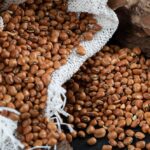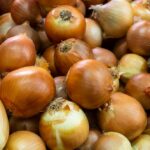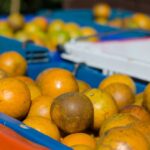Smallholder farming plays a vital role in South Africa’s agricultural sector, contributing to food security and rural livelihoods. However, many small-scale farmers face challenges that hinder their productivity and profitability. Recognizing and avoiding common mistakes can help smallholder farmers thrive and sustain their businesses.
Lack of Proper Planning
Many smallholder farmers begin farming without clear plans. This includes failing to map out planting schedules, estimate production costs, or identify suitable markets. Proper planning is critical to ensuring that farming activities align with available resources, seasonal conditions, and market demands.
Choosing the Wrong Crops or Livestock
Growing crops or raising livestock that are not suited to the local climate, soil type, or market demand is a common mistake. For example, planting water-intensive crops in areas prone to drought can lead to poor yields and wasted resources. Farmers should choose crops and livestock adapted to their region and prioritize those with high market demand.
Overlooking Soil Health
Many smallholder farmers neglect the importance of soil health, leading to poor crop performance. Over-farming, lack of crop rotation, and limited use of organic matter degrade soil fertility over time. Regular soil testing, organic composting, and appropriate fertilizers can help maintain healthy soil.
Inefficient Water Management
South Africa is a water-scarce country, and smallholder farmers often misuse or waste water. Over-irrigating or using inefficient methods such as flood irrigation can deplete water resources. Adopting water-saving techniques like drip irrigation, rainwater harvesting, and mulching can optimize water use and improve productivity.
Failure to Keep Records
Keeping accurate records of farm activities, expenses, and income is often overlooked. This makes it difficult to track progress, identify profitable ventures, or access loans. Smallholder farmers should maintain records of planting dates, yields, sales, and costs to make informed decisions and demonstrate their farm’s viability to potential financiers.
Lack of Pest and Disease Control
Failing to manage pests and diseases is another common mistake. Ignoring early signs of infestation or overusing chemical pesticides can lead to significant crop losses or environmental harm. Integrated Pest Management (IPM) techniques, such as using natural predators or crop rotation, can help control pests sustainably.
Overdependence on Manual Labor
Many smallholder farmers rely heavily on manual labor, which limits productivity and scalability. While mechanization may seem expensive, small investments in tools or shared equipment can significantly increase efficiency. Collaborating with neighboring farmers to share resources can also help reduce costs.
Underestimating Market Access
Producing crops or livestock without considering how to sell them is a frequent issue. Farmers often face challenges accessing markets due to poor infrastructure or lack of market information. Partnering with cooperatives, leveraging digital platforms, or selling directly to local communities can improve market access and profitability.
Neglecting Training and Education
Many smallholder farmers do not seek training to improve their skills or stay updated on modern farming techniques. Agricultural practices and technologies are constantly evolving. Farmers should attend workshops, join farmer associations, or connect with extension services to gain knowledge and improve their methods.
Ignoring Financial Management
A lack of financial planning and budgeting can lead to cash flow problems and an inability to reinvest in the farm. Farmers should separate personal and farm finances, create budgets, and save for unexpected expenses like equipment repairs or poor harvests. Accessing microloans or government grants designed for smallholder farmers can also provide additional support.
Smallholder farming is an essential component of South Africa’s agricultural economy. By addressing these common mistakes, farmers can enhance their productivity, improve their livelihoods, and contribute to food security. Small, strategic changes in planning, resource management, and education can make a significant difference, ensuring that smallholder farming remains sustainable and profitable.







